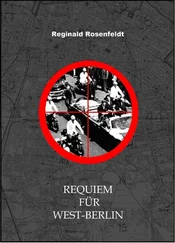Isaiah Berlin - Russian Thinkers
Здесь есть возможность читать онлайн «Isaiah Berlin - Russian Thinkers» весь текст электронной книги совершенно бесплатно (целиком полную версию без сокращений). В некоторых случаях можно слушать аудио, скачать через торрент в формате fb2 и присутствует краткое содержание. Год выпуска: 0101, Жанр: Старинная литература, на русском языке. Описание произведения, (предисловие) а так же отзывы посетителей доступны на портале библиотеки ЛибКат.
- Название:Russian Thinkers
- Автор:
- Жанр:
- Год:0101
- ISBN:нет данных
- Рейтинг книги:3 / 5. Голосов: 1
-
Избранное:Добавить в избранное
- Отзывы:
-
Ваша оценка:
- 60
- 1
- 2
- 3
- 4
- 5
Russian Thinkers: краткое содержание, описание и аннотация
Предлагаем к чтению аннотацию, описание, краткое содержание или предисловие (зависит от того, что написал сам автор книги «Russian Thinkers»). Если вы не нашли необходимую информацию о книге — напишите в комментариях, мы постараемся отыскать её.
Russian Thinkers — читать онлайн бесплатно полную книгу (весь текст) целиком
Ниже представлен текст книги, разбитый по страницам. Система сохранения места последней прочитанной страницы, позволяет с удобством читать онлайн бесплатно книгу «Russian Thinkers», без необходимости каждый раз заново искать на чём Вы остановились. Поставьте закладку, и сможете в любой момент перейти на страницу, на которой закончили чтение.
Интервал:
Закладка:
meaning both to Tolstoy's life and to the morally agonised, didactic
pages of his art. He furiously rejected the compromises and alibis of
his liberal contemporaries as mere feebleness and evasion. Yet he
believed that a final solution to the problems of how to apply the
principles of Christ must exist, even though neither he nor anyone
else had wholly discovered it. He rejected the very possibility that
some of the tendencies and goals of which he speaks might be literally
both real and incompatible. Historicism versus moral responsibility;
quietism versus the duty to resist evil; teleology or a causal order
against the play of chance and irrational force; spiritual harmony,
simplicity, the mass of the people on the one hand, and the irresistible
attraction of the culture of minorities and its art on the other; the
,,
259

R U S S IAN T H I N K E R S
corruption of the civilised portion of society on one side, and its dir•.:ct
duty to raise the masses of the people to its own level on the other;
the dynamism and falsifying influence of passionate, simple, one-sided
faith, as against the clear-sighted sense of the complex facts and
inevitable weakness in action which flows from enlightened scepticism
-all these strains are given full play in the thought of Tolstoy. His
adhesion to them appears as a series of inconsistencies in his system
because it may be that the conflicts exist in fact and lead to collisions
in real life.1 Tolstoy is incapable of suppressing, or falsifying, or
explaining away by reference to dialectical or other ·�eeper' levels of
thought, any truth when it presents itself to him, no matter what
this entails, where it leads, how much it destroys of what he most
passionately longs to believe. Everyone knows that Tolstoy placed
truth highest of all the virtues. Others have said this too, and have
celebrated her no less memorably. But Tolstoy is among the few who
have truly earned that rare right: for he sacrificed all he had upon her
altar-happiness, friendship, love, peace, moral and intellectual certainty, and, in the end, his life. And all she gave him in return was doubt, insecurity, self-contempt and insoluble contradictions.
In this sense, although he would have repudiated this violently, he
is a martyr and a hero-perhaps the most richly gifted of all-in the
tradition of European enlightenment. This seems a paradox; but then
his entire life bears witness to the proposition to the denial of which
his last years were dedicated: that the truth is seldom wholly simple
or clear, or as obvious as it may sometimes seem to the eye of the
common observer.
1 Some Marxist critics, notably Lukacs, represent these contradictions u
the expression in art of the crisis in Russian feudalism and in particular in
the condition of the peasants whO&e predicament Tolstoy is held to reflect.
This seems to me an over-optimistic view: the destruction of Tolstoy's world
should have made his dilemmu obsolete. The reader can judge for himself
whether this is so.
Fathers and Children
T U R G E N E V A N D T H E LI B E R A L
P R E D I C A M E N T
You do not, I see, quite undentand the Ruaaian public. Ita
character is determined by the condition of Russian society,
which contain11, imprisoned within it, fresh forces seething
and bunting to break out; but crushed by heavy repression
and unable to escape, they produce gloom, bitter depression, apathy. Only in literature, in spite of our Tartar censonhip, there is still o.ome life and forward movement.
This is why the writer's calling enjoys such respect among
u11, why literary success is so r:uy here even when there ia
little talent . • . This is why, especially amongst us, univenal attention ia paid • • . to every manifestation of any so-called liberal trend, no matter how poor the writer's
gifts • . . The public • . • sees in Russian writen its only
leaden, defenden and savioun from dark autocracy,
Orthodozy and the national way of life • • • 1
Vissarion Belinsky (0�" Lmtr '' G'gel, 1 5 July 1 84-7)
O N 9 October 1 883 Ivan Turgenev was buried, as he had wished.
in St Petersburg. near the grave of hi.s admired friend. the critic
• Belinsky's words-s•motltrz!Jtlflit, prtlfi()J/tlflit ; flllrDJ,,sl' -echo the
official patriotic formula invented by a Minister of Education early in the
reign of Nicholas I. The last of these words-flllrotlfloJI'-was evidendy intended
as the Russian equivalent of Yollstum; it was used in thil context to contrat
the traditional 'folkways' of the common people with the imported, 'arti6cial'
constructions of'wiaeacres' inJluenced by western enlightenment. In practice
it connoted official patriotism as well as such institutions as serfdom, the
hierarchy of estates, and the duty of implicit obedience to the Emperor and
his Government. Belinsky'• letter is a bitter indictment of Gogol for uaing his
genius 'sincerely or insincerely' to serve the cause of obecurantiam and reaction. It was on the charge of reading the letter at a secret meeting of a aubvenive group that Dostoevsky wu arrC:sted and condemned to death.
261
�·
R U S S IAN THINKERS
Visarion Belinsky. His body was brought from Paris after a brief
ceremony near the Gare du Nord, at which Ernest Renan and Edmond
About delivered appropriate addres5e5. The burial service took place
in the presence of representative$ of the Imperial Government, the
intelligentsia, and workers' organisations, perhaps the first and last
occasion on which these groups peacefully met in Russia. The times
were troubled. The wave of terrorist acts had culminated in the
assassination of Alexander II two years earlier; the ringleaders of the
conspiracy had been hanged or sent to Siberia, but there was still
great unrest, especially among students. The Government feared that
the funeral procession might turn into a political demonstration. The
press received a secret circular from the Ministry of the Interior
instructing it to print only ofticial information about the funeral
without disclosing that any such instructions had been received.
Neither the St Petersburg municipality nor the workers' organisations
were pennitted to identify themselves in the inscriptions on their
wreaths. A literary gathering at which Tolstoy was to have spoken
about his old friend and rival was cancelled by government order. A
revolutionary leaflet was distributed during the funeral procession, but
no official notice of this was taken, and the occasion seems to have
passed off without incident. Yet these precautions, and the uneasy
abnosphere in which the funeral was conducted, may surprise those
who see Turgenev as Henry James or George Moore or Maurice
Baring saw him, and as most of his readers perhaps see him still: as a
writer of beautiful lyrical prose, the author of nostalgic idylls of
country life, the degiac poet of the last enchanbnents of decaying
country houses and of their ineffective but irresistibly attractive
inhabitants, the incomparable story-teller with a marvellous gift for
describing nuances of mood and feeling, the poetry of nature and of
love, gifts which have given him a place among the foremost writers
of his time. In the French memoirs of the time he appears as It douz
gltmt, as his friend Edmond de Goncoun had called him, the good
Читать дальшеИнтервал:
Закладка:
Похожие книги на «Russian Thinkers»
Представляем Вашему вниманию похожие книги на «Russian Thinkers» списком для выбора. Мы отобрали схожую по названию и смыслу литературу в надежде предоставить читателям больше вариантов отыскать новые, интересные, ещё непрочитанные произведения.
Обсуждение, отзывы о книге «Russian Thinkers» и просто собственные мнения читателей. Оставьте ваши комментарии, напишите, что Вы думаете о произведении, его смысле или главных героях. Укажите что конкретно понравилось, а что нет, и почему Вы так считаете.










